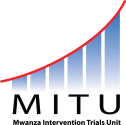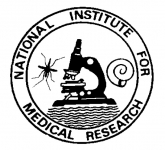
The Mwanza Intervention Trials Unit (MITU) emerged from a long-term partnership between the Tanzanian National Institute for Medical Research (NIMR) and the London School of Hygiene and Tropical Medicine (LSHTM). Famous for ‘the Mwanza trial’, the NIMR–LSHTM collaboration has developed and evaluated many interventions into HIV and other sexual health problems.
As STRIVE partners, MITU and NIMR bring methodologies and findings from more than 20 years’ extensive social, economic and behavioural research. They also contribute experience in ensuring complementary of external and local expertise, including ownership and leadership of the research.
Influence
NIMR and LSHTM conducted the first major HIV prevention trial, often called ‘the Mwanza trial’, between 1991 and 1995. The findings – that improved treatment services for sexually transmitted infections reduced adult HIV incidence by 40% – have shaped HIV policies and programmes worldwide.
Subsequent NIMR and MITU research has been influential too.
- The MITU-conducted trial Mema kwa Vijana influenced the Tanzanian Ministry of Education to introduce school-based HIV prevention in other districts.
- NIMR-sponsored research identified the influence of social context and cultural and gender norms on adolescents’ sexual behaviour, and this evidence has shaped sexual and reproductive health programmes.
- Information from a series of NIMR/MITU studies on the sexual and other behaviours of high-risk women has been used by local government and national authorities.
Background
Over the past 20 years, the NIMR–LSHTM collaboration has conducted ground-breaking research on HIV and other sexual health problems, generally through randomised controlled trials.
Among numerous others, ‘the Mwanza trial’ was followed by:
- ongoing studies of the trend and impact of the HIV/AIDS epidemic, including the role of the family, gender and power relations on the sexual behaviour of rural youth, local illness discourses and treatment seeking behaviours for AIDS;
- a community-randomised trial to assess the impact of an adolescent sexual and reproductive health programme, Mema kwa Vijana (“good things for young people” or MkV);
- formative research on scaling up MkV, along with support interventions such as working with parents and communities;
- a trial to determine whether a genital-herpes treatment could reduce HIV incidence, and
- a trial to evaluate the safety and efficacy of the vaginal gel PRO 2000/5 for HIV prevention.
The collaborative group in Mwanza has published over 80 peer-reviewed papers in the New England Journal of Medicine, Lancet, AIDS and the Journal of Infectious Diseases among others.
People
Saidi Kapiga, STRIVE Research Director, is the Director of MITU.
Joyce Wamoyi, a social scientist at NIMR, is an expert in gender, families and HIV.
Gerry Mshana, NIMR's Principal Research Scientist, is an experienced medical anthropologist a.




